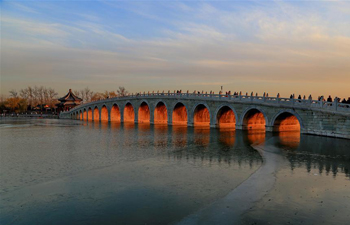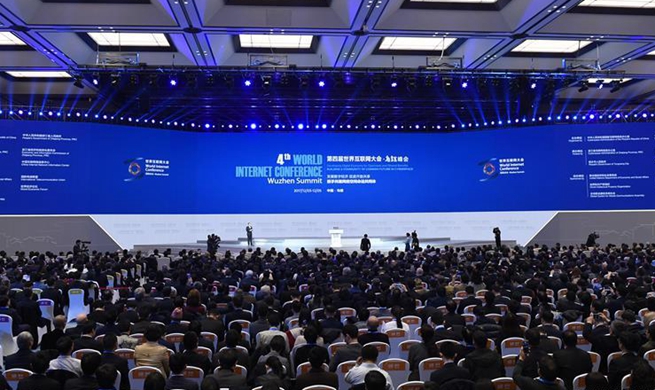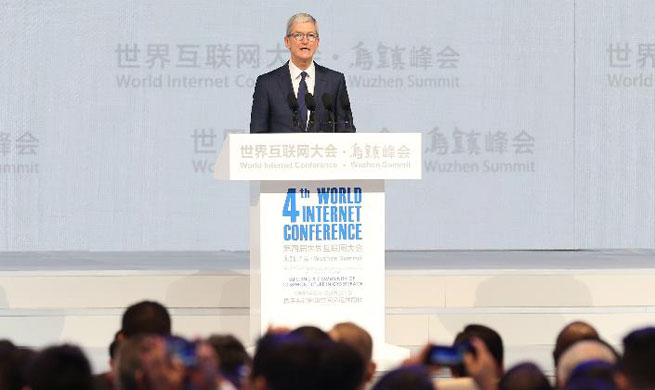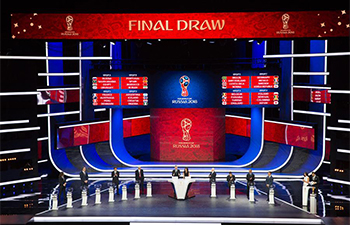BEIJING, Dec. 3 (Xinhua) -- Chinese restaurants have seen a pick up in profit through transformation, after the catering industry was battered by the frugality and anti-corruption drive which began five years ago.
On Dec. 4, 2012, leaders of the Communist Party of China (CPC) introduced an eight-point frugality rule on work style, requiring officials to condense meetings, reduce ceremonies and exercise thriftiness.
The rule has greatly helped reduce the number and cost of banquets and recreational activities using public funds, however, it left high-end restaurants and hotels with operational difficulties.
To survive, restaurants have had to lower their menu prices, and hotels have moved toward attracting more wedding ceremonies and business meetings.
DOWNGRADE OR DIE
Prior to the eight-point rule, officials were often seen eating at fancy restaurants at the public expense or when invited by business owners.
He Baogui, secretary-general of Beijing's municipal food and beverage industry association, said high-end consumption from 800 to 1,000 yuan per person per meal was greatly affected by the rule, especially during 2014.
According to a manager at Beijing Tourism Group, the parent company of Beijing Hotel, the hotel's sales revenue slumped from 350 million yuan (53 million U.S. dollars) in 2012 to 270 million yuan in 2014, with a 20 to 30 percent of annual reduction.
"Until 2014, many thought the eight-point rule was just a temporary action, then they realized transformation was a necessity," he said.
Liu Guopeng, deputy general manager of Beijing's most famous roast duck chain restaurant, Quanjude, said they condensed their menu twice in 2015 and 2016, deleting expensive dishes, such as shark fin and abalone. Customized dishes were added in various outlets to cater to local tastes across the country.
Xiang'eqing, a high-end chain restaurant featuring Hunan and Hubei cuisine, closed three quarters of its more than 30 outlets across the country. Only one remains open in Beijing.
"We have stopped serving expensive seafood dishes and lowered the prices of other dishes," said a manager surnamed He at Xiang'eqing's branch on Gulou Outer Street, Beijing.
On the menu, many options have labels with new prices, with average prices from 30 yuan to 40 yuan per dish. The minimum cost previously required to hire a private room has also been lifted.
Large hotels are now targeting wedding ceremonies and business meetings and expanding their business scope to a comprehensive complex that combines office buildings, apartments, meeting venues and shopping.
"Rental of office buildings and shops can help offset the impact of shrinking hotel and restaurant revenue," said Wang Zhong, general manager of Grand Hotel Beijing.
Figures show China's catering industry surged up 7.8 percent year on year to nearly 3.6 trillion yuan in 2016.
Hong Tao, a professor of economics at Beijing Technology and Business University, said that over the past five years, the eight-point rule has not only saved public funds, but also forced restaurants and hotels to return to a more rational operational structure.
"In terms of increasing income and consumption potential, the food and beverage industry will become healthier and more sustainable only if businesses are innovative in their operation modes to meet public demand," he said.

















